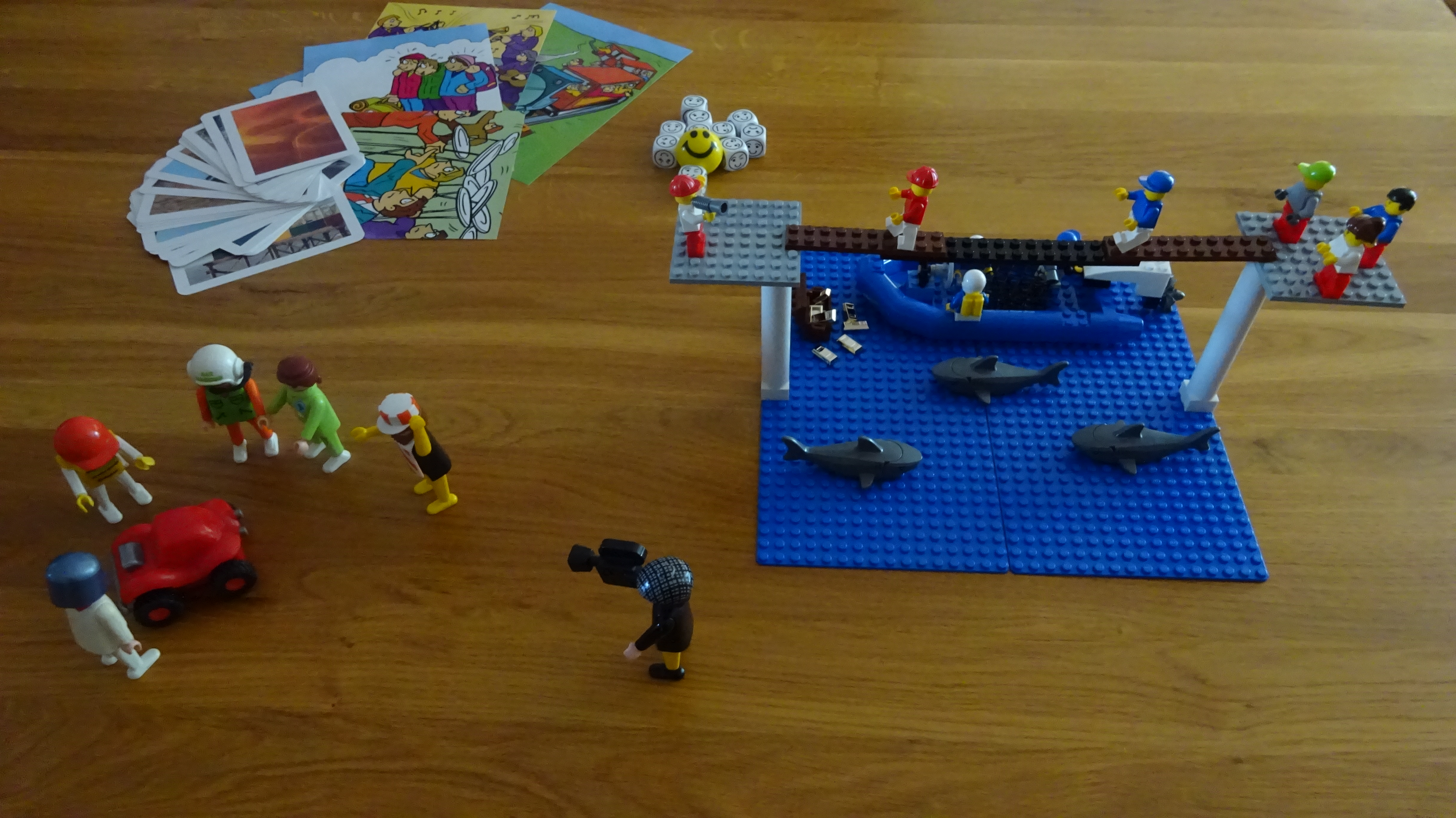Why PLAY and EXPLORING are important in organisational development
There seems to be a paradox in business that play is only for children, not for adults and most certainly not appropriate within a serious business environment.
Nothing could be further from the truth. Every adult still has a desire to play whether consciously or subconsciously.
Why is play so important in learning and development ?
- People bond better when playing, (co-)creating, imagining and exploring in a safe environment. The safe environment is essential and needs to be created by experienced facilitators/coaches.
- If play and simulation games are effectively designed and integrated in a learning programme they offer a safe opportunity to learn. One is not using the real world to experiment with, meaning there is not much at risk other than powerful learning. This powerful learning is the result of having the permission to make mistakes and enjoy success, to use effective and ineffective communication during the activity and to observe and experience different behaviours having an impact.
- Play and simulation games are a challenging activity in which most people engage immediately.
- The feelings they generate are real and stick with people longer than cognitive learning alone.
Just think about a great or a bad experience in your life ! Simply recalling the experience has a huge effect on feelings and bodily sensations. The memories remain vividly.
- Play and simulation games allow for more risk taking, experimenting, exploring and learning in a safe context.
“It has been demonstrated that carefully orchestrated play in organisations contributes to “building adult learning communities” and enhances “adult learners’ collective experiences and understandings” (Harris & Daley 2008, p52)”*
So why not integrating some play and exploration into learning and development in your organisation ?
Experiential learning, based on Kolb’s experiential learning cycles (ELT)** allows participants to extract the learning from the doing. Instead of telling, lecturing, ‘powerpoint’-ing how something should be done, learners engage in an experience, not only mentally but also physically and emotionally. They reflect on the experience afterwards, connect the experience to easy to understand concepts and then try out the learning, resulting in new experiences.
“Learning is the process whereby knowledge is created through the transformation of experience” (Kolb, 1984, p. 38). **
My experience to date with activities, learning tools and play :
- Working for over 10 years as a facilitator/trainer in experiential leadership courses at the Leadership Trust in UK I hear lots of positive feedback from participants after attending a course based on experiential learning. “Best course I’ve ever been on” “Full of surprises which is fun learning” “It’s a different thing doing things instead of taking about them”….see more reviews
Most people love challenges and like to engage in play, exercises or simulation games. The learning they extract from the experience is powerful and lasting for life.
Hence the reason why all courses I now design are based on experiential learning allowing people to practice skills whilst having fun and using play into learning.
- Another inspiring way to grow awareness and develop new thinking is using the LEGO® SERIOUS PLAY® methodology . This is thinking with the hands and the mind. It engages creativity in our brain and allows for different, imaginative thinking. It’s an eye opener for teams in organisations to build a strategy/plan/team/… using play through construction with LEGO®, rather than pencilling in ideas and figures on a flipchart sheet.
How often do we really fully engage our brain potential into work ?
Wouldn’t it be more fun if we could seriously work and learn combined with play ?
Would you like to receive monthly leadership tips ? Subscribe to the newsletter on www.leadersfastlane.com

